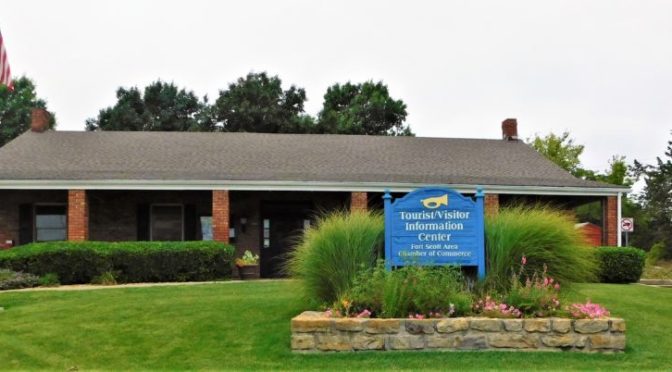Toursim Center Interior Remodeled

An increased focus on tourism for the City of Fort Scott has brought about the renovation of the interior of the Tourism/Chamber of Commerce Center.
The center is located at 231 E. Wall Street.
“Now when someone hits the door, there is someone there to greet them,” Allyson Turvey, convention and group sales said. “It really needed to open up.”
The Chamber section of the building also needed more visibility, so a hole was placed in a wall so the administrative assistant can view the lobby. Lindsay Madison is the executive director of the Chamber, Hannah Reel is a part-time administrative assistant. The Chamber is currently searching for another staff person.
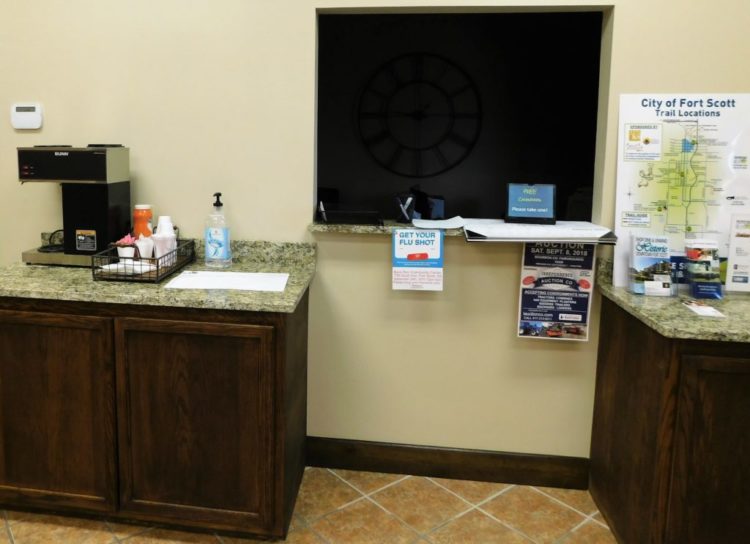
Some fresh paint and a reconfiguring of the display areas were part of the process, as well.

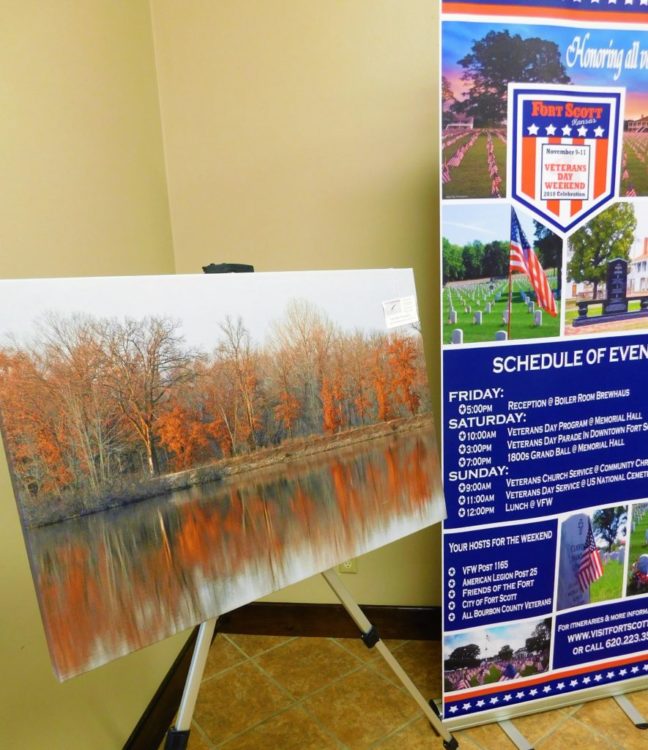
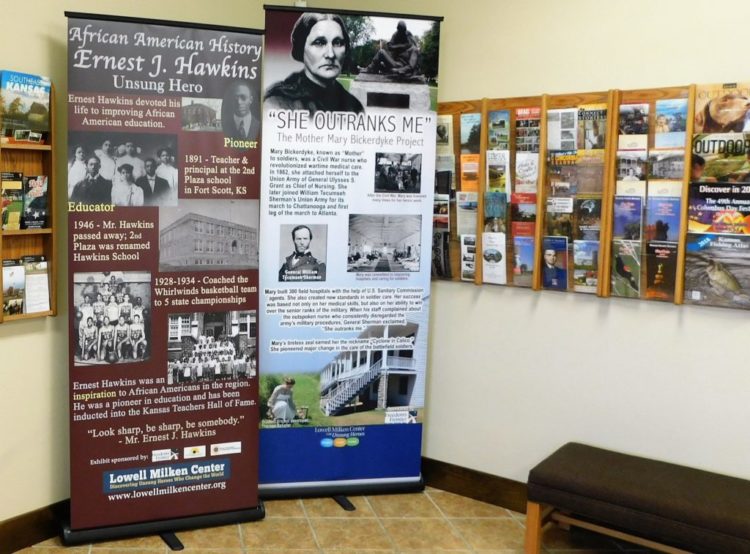
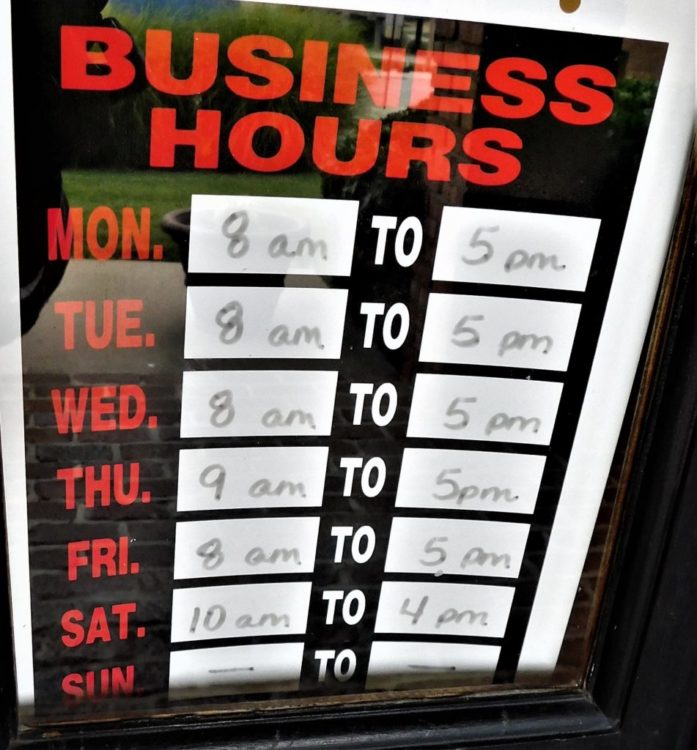
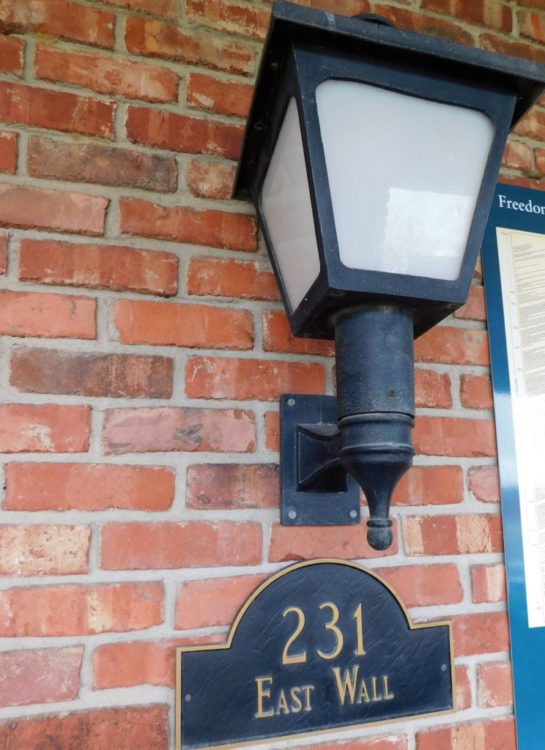
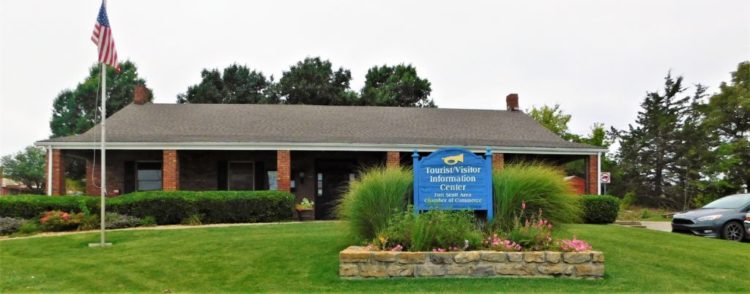
Decorator finishing touches will be provided by area merchants who will allow their furnishings and accessories to be seen and used in the center, according to Turvey.
“Fort Scott tourism is managed by the City of Fort Scott, which administers tourism operations by maximizing the utilization of transient guest tax revenues to advertise and promote Fort Scott lodging, activities, attractions and events, operate a Tourism Center providing concierge services and visitor information, and facilitate any other related programs to attract individuals and groups for overnight stay in the community,” according to the tourism website.
To learn more: http://www.visitfortscott.com
The Tourism phone number is 620-670-2750.
The Chamber phone number is 620-223-3566.
The Bourbon County Sheriff’s Office Daily Reports Aug. 30
Click below for the Bourbon County Sheriff’s Office daily reports. The BCSO can be reached at (620) 223-2380.
Bumps and Bruises Clinic Offered on Saturday Mornings

Beginning Saturday, Sept. 1 at 7 a.m., Mercy Fort Scott Sports Medicine will offer free evaluations of student athlete injuries at the Bumps and Bruises Clinic. The location of the clinic is in the Health For Life area, in the lower level of the hospital.
Protect Your Dog from Harmful Algae

TOPEKA – Officials with the Kansas Departments of Wildlife, Parks, and Tourism (KDWPT) and Health and Environment (KDHE) want dog owners to be aware how dangerous harmful algae blooms (HABs) can be to their dogs.
A HAB is an abnormally high population of blue-green algae in a body of water. Whether you hunt with your dog near water or just take it out for a walk, there are things you can do to protect your four-legged partner.
HABs can occur in lakes, ponds, wetlands, creeks or drainage areas, generally coinciding with warm water temperatures and often flourishing in nutrient-laden waters.
Dogs can become seriously ill or die if they swim in, drink or retrieve a bird from water affected by a HAB.
They can even be sickened if they lick their fur after exposure or eat dried algae along the shore or floating in the water.
A HAB may look like foam, scum or paint floating on the water and be colored blue, bright green, brown or red.
There may also be a very strong musty odor or the smell of sewage or petroleum.
This season, if the water appears or smells suspicious or if there are decaying algae on the shore, do not let your furry friend drink, swim or retrieve birds in the water.
Blue-green algae are really a type of bacteria called “cyanobacteria,” which occurs naturally in all waters around the globe.
Under the right conditions, the algae can rapidly increase (bloom) and produce toxins. Although HABs typically begin in May, they can occur through October or later.
Algae can wash up on shorelines and in marshy areas and even after they are dead and dry, toxins that were produced can persist for long periods.
Dogs will still be at risk if they drink the HAB-affected water, walk on, roll in, eat decaying algae along the shore or retrieve a bird with algae on its feathers.
Just a small amount of blue-green algae can sicken or kill a dog.
The signs of illness in dogs usually occur within 30 minutes of exposure and include vomiting, diarrhea, lethargy, convulsions, difficulty breathing and general weakness.
If you suspect your dog has ingested algae or has any of these symptoms, contact your veterinarian immediately.
People may also become ill after contact with algae-produced toxins. Symptoms vary, depending upon the type of exposure (e.g. direct contact, ingestion, inhalation) but can include rash, vomiting, diarrhea, fever, sore throat, and headache.
If you or your dog come into contact with algae, immediately rinse the contact area with clean, fresh water. If you or your dog show signs of illness, call your physician or veterinarian.
KDWPT and KDHE offer the following tips to help prevent HAB poisoning in dogs:
· Carry potable water for yourself and your dog when hunting or going for walks along the shore.
· Train dogs to come to you for a drink of water.
· Rinse off your dog with potable water as quickly as possible if your dog swims in a HAB or walks through dried algae.
· Do not let dogs eat dried algae along the shoreline. A bluish color along the shore indicates dying, toxic blue-green algae.
· Do not let your dog lick their paws if they have walked through dried algae and remember that waterfowl in HAB-affected water may have toxic cells on their feathers.
KDHE samples publicly-accessible bodies of water for blue-green algae when the agency is alerted to a potential HAB.
When a HAB occurs, KDHE, in cooperation with KDWPT and other lake managers where appropriate, responds by informing the public of these conditions.
KDHE does not sample private bodies of water such as farm ponds or livestock watering tanks but has recommendations on what to look for, how to field test and who to contact for additional assistance on KDHE’s HAB website.
For the most up-to-date list of waters currently affected by HABs, or to report a suspected HAB not currently listed, visit www.kdheks.gov/algae-illness. Hunters and the public can also get current HAB-related lake conditions by calling 1-855-HAB-LAKE (1-855-422-5253).
Jared Leek Opens Front Door Real Estate at 14 S. Main

Jared Leek saw some downtown buildings that were vacant and decided to make a difference. He is already the owner of the Liberty Theater and Crooner’s Lounge in historic, downtown Fort Scott.
Most recently, he purchased the building whose storefronts are 14 and 16 S. Main.
“I purchased because I saw an opportunity to take a building vacant for several years and grow the downtown,” he said. “And grow my real estate business.”
His Front Door Real Estate office will be located at 14 S. Main.
Crystal Mason and Lisa Ward are working with Leek at the realty.
Leek has been renovating the building for a month and is working on the finishing touches and internet service currently.
The Front Door Real Estate business contains three offices and a conference room along with a lobby.
“In the very back there is an old dance studio,” Leek said. “That space will be available to rent.”
It would be suitable for a yoga or dance studio, he said. “And we will build to suit.”
The landline number to Front Door Real Estate is 620-224-9787, which connects with Leek, Mason and Ward’s cell phones.
He is anticipating an early September opening.
Leek received a downtown revitalization grant from the City of Fort Scott to help with the renovation of the old building which was once Dr. Charles Parson’s Chiropractic Office.
“It’s (the grant) for downtown business owners,” Leek said. “You can apply for it every year for heating, cooling, windows, doors…anything with the structure, to help preserve the buildings”
In addition to his businesses, Leek is the manager of the River Room Event center, just above the old Buffalo Grill on National Avenue.
“That space is available for rent for up to 750 people,” Leek said.
The River Room Event Center has a full bar, caterer’s kitchen, dance floor, bridal suite, handicapped-accessible restrooms, and an elevator, he said.
The Buffalo Grill, which is on the first floor, beneath the River Room, has been shown to several interested parties for possible restaurants, “But nothing is in stone yet,” Leek said.
Another building long vacant, the old Kress Building, is for sale across from Front Door Real Estate and is listed by the real estate business.
At 16 S. Main, Jan and Dick Hedges will be opening a bookstore, called Hedgehog Ink in October, Leek said.
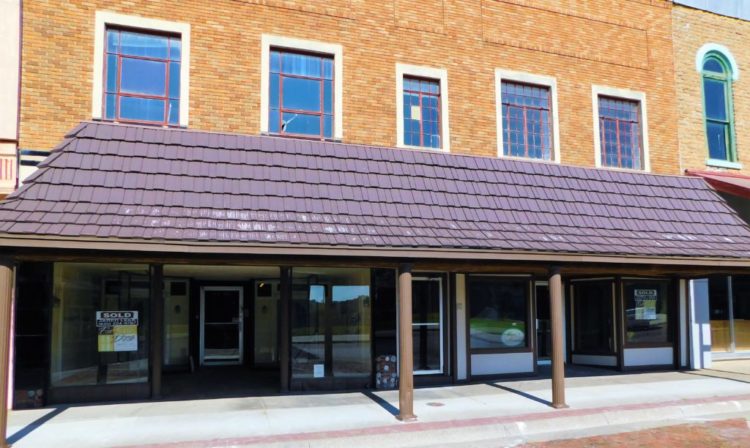
The Bourbon County Sheriff’s Office Daily Reports August 29
Chamber Coffee at Mercy Hospital August 30
|
Weekly Chamber Coffee REMINDER
|
|
FS Middle School Volleyball Sweeps In Six Matches

The Fort Scott Middle School Volleyball home opener against Praire View provided wins in all six matches. Fort Scott played against 59 athletes last night, August 28.
Obituary of Donald “Fred” Savage
Donald “Fred” Savage, 80, of Fulton, Kansas, passed away Monday morning, August 27, 2018, at Mercy Hospital in Fort Scott, Kansas.
He was born February 4, 1938, in Harrison, Arkansas, the son of Thomas Franklin and Rita Myrle (Willis) Savage. He married Joan Hays April 3, 1957, and she preceded him in death August 22, 2017.
Fred is survived by his children, Joseph F. Savage, of Ottawa, Kansas, and Kenneth D. Savage, of Hammond, Kansas; two brothers, Raymond Joe Savage, of Fort Scott, Kansas, and Franklin Savage, of Rantool, Kansas; six grandchildren, and two great-grandchildren.
In addition to his wife Joan, Fred was also preceded in death by his parents, and a brother, Ed Savage.
Rev. Paul Rooks will conduct graveside services 11:00 a.m. Thursday, August 30, 2018, at the West Liberty Cemetery under the direction of the Konantz-Cheney Funeral Home.
The family will receive friends at the funeral home at 10:00 a.m. on Thursday and leave for the cemetery and 10:45 a.m. Condolences may be submitted to the online guestbook at konantz-cheney.com.



